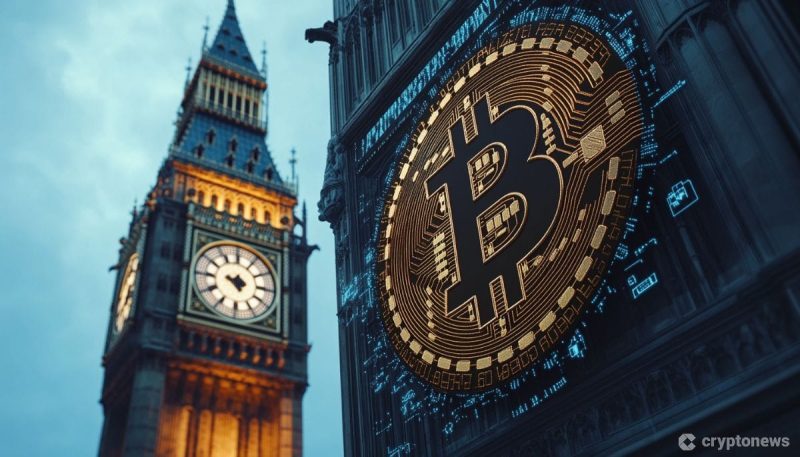When Labour swept to power in the UK elections two months ago, there were fears that pro-crypto policies may be few and far between.
But in a development that seemingly came out of the blue, a new law has been proposed that would declare Bitcoin, NFTs and other digital assets as personal property.
It’s hoped the draft bill will provide greater clarity when crypto is at the heart of bitter legal disputes — and significantly, the government says it wants Britain to “maintain pole position” when it comes to regulating the industry.
The announcement has received a warm welcome from industry stakeholders as a promising starting point, and a sign that other literate policies could follow in the years to come.
Lisa Cameron, a former Member of Parliament who chaired the All-Party Parliamentary Group for Cryptocurrency and Digital Assets in the House of Commons until earlier this year, told Cryptonews that momentum must keep building for the UK to become a market leader.
“Clarity aids certainty for investors — and with MiCA being rolled out, it is vital that the UK progresses rapidly, otherwise other jurisdictions will ‘steal our thunder’ on fintech,” she said. “It is crucial that crypto and digital assets are a priority for the new Labour government.”The Conservatives, whose 14 years in power recently came to an abrupt end, had long touted crypto as an industry that could offer dividends to the economy after Brexit — and help the City of London maintain relevance in an increasingly digital world.
But many of their policies, including hastily abandoned plans for the UK to launch its own non-fungible token, faced a fierce backlash — with critics arguing the government should have been focusing on more pressing matters like the cost-of-living crisis.
British crypto exchanges have told Cryptonews that the new Property (Digital Assets etc) Bill is a “step in the right direction,” but warned hurdles remain when it comes to adoption — and encouraging crypto firms to establish their headquarters here.
Daniel Scott, the CEO of Coincorner, said:
“The UK still has Bitcoin classified as a restricted mass market investment, which I believe is the real deterrent for companies setting up operations in the UK and more consumers adopting Bitcoin. This new categorization won’t change anything there, so it’s unlikely it’ll help attract any new businesses from around the world.”In an email to Cryptonews, Kraken’s UK general manager Bivu Das stressed that the proposed law is at a very early stage — and further scrutiny from the House of Commons and the House of Lords lies ahead before it is submitted to King Charles for approval. Das wrote:
“Codifying the legal status of digital assets, including crypto, NFTs, and tokenized real-world assets as personal property is significant because there are already established guidelines for determining the distribution of personal property in the event of financial fraud, scams and even cases of divorce between couples.”London: A Global Hub for Crypto?
Several British law firms have now set up dedicated departments that specialize in digital assets — including Forsters, which is based in the capital.
James Brockhurst, a partner who leads their crypto practice, told Cryptonews that the draft law shows English politicians are “serious” about the sector.
“The English legal system has led the way in terms of the legal characterisation and treatment of cryptoassets, and this is the latest iteration of that,” he said. “If UK regulation could catch up, and if greater tax incentives were awarded to crypto businesses, then London could become a true global hub for cryptoassets.”Brockhurst went on to predict that England could become the jurisdiction of choice when crypto-related contracts and agreements are being drawn up, as the country’s courts have already become a popular venue when disputes are being settled.
He explained that courts in other nations — including Singapore and New Zealand — have already recognized cryptoassets as property, but believes that efforts to enshrine this in law indicates that England plans to take the rights of investors seriously.
“This may be appealing to exchanges, custodians, and other actors in the digital assets space,” Brockhurst added.
Crypto didn’t get a single mention in Labour’s manifesto before the election, but this draft proposal is in response to a report released by the Law Commission last year.
At present, property can be categorized in one of two ways. There are “things in possession” such as gold, money and cars — as well as “things in action” like debts and shares. But experts from the commission argued that, in many cases, cryptocurrencies don’t neatly match either of these definitions, meaning a third category needed to be created.
While this bill may not lead to a sudden influx of new Bitcoiners or crypto firms, there’s likely to be one early winner: the legal sector.
The government noted that law firms are worth £34 billion a year to the UK economy — and keeping up to date with new technology will mean Britain “remains the law of choice internationally.”
As Justice Minister Heidi Alexander said: “It is essential that the law keeps pace with evolving technologies and this legislation will mean that the sector can maintain its position as a global leader in cryptoassets and bring clarity to complex property cases.”
Challenges remain. Despite research from the Financial Conduct Authority in 2022 suggesting that almost five million Britons own crypto, the Bank of England remains extremely wary of this asset class — warning investors should be prepared to lose their entire investment. Tight restrictions are in place too, with crypto ATMs banned and major exchanges failing to secure licenses to operate.
Nonetheless, this is the surest sign yet that the government is acknowledging that Bitcoin isn’t going anywhere — and digital assets have the potential to redefine 21st-century finance.
The post UK May Be More Bullish on Crypto Than You Think — Here’s Why appeared first on Cryptonews.


